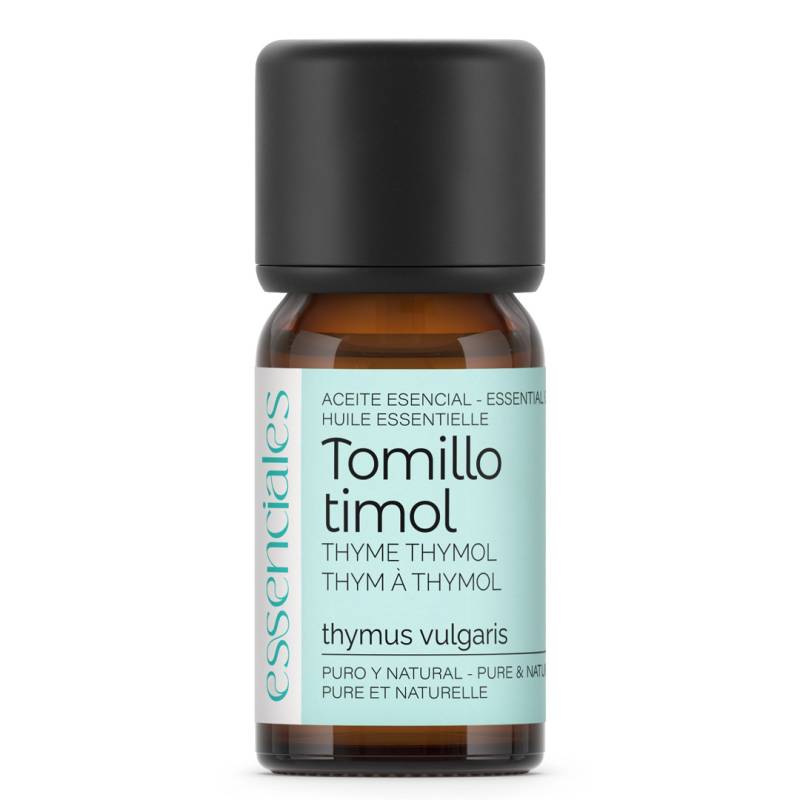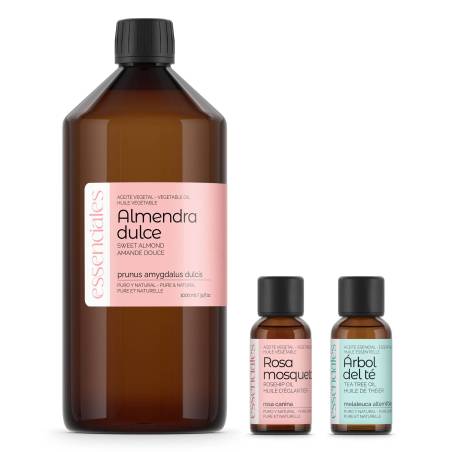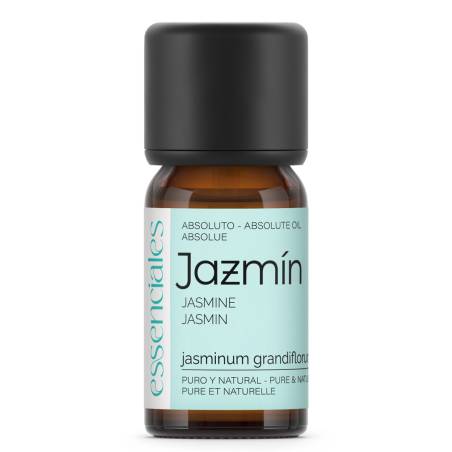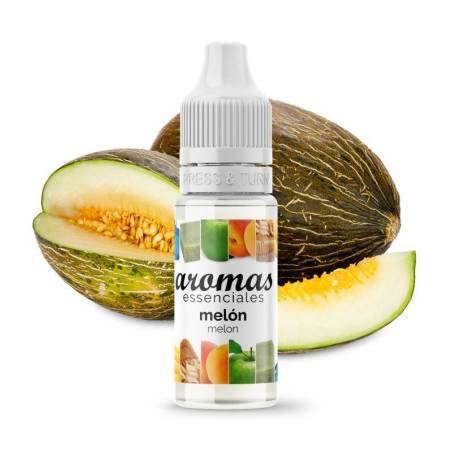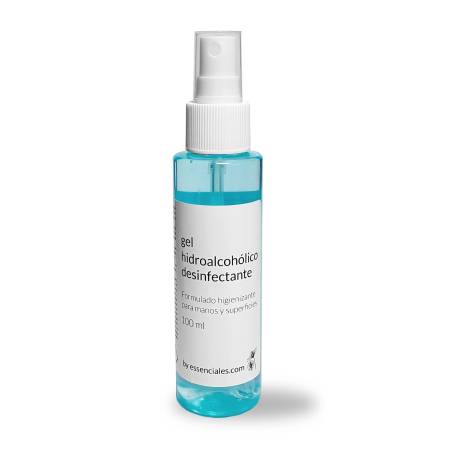Organic Thymol Thyme Essential Oil - Thymus vulgaris -
Thyme is a common aromatic and medicinal plant that grows on sunny slopes in southern Europe and northern Africa. It is a small subshrub that can reach between 13 cm and 40 cm in height. Thyme stems are upright, quadrangular, woody, and very branched. The leaves are small, oval, with rolled edges and downy undersides. Thyme flowers are small and pink, produced in clusters. Thyme blooms in the spring and is a plant deeply rooted in Mediterranean culture. It was one of the plants used by the Egyptians for embalming, and some say the name "thyme" might come from the Egyptian word "tham" or "thym," referring to the type of thyme they used. Other sources refer to the Greek origin of the word, "thymos" or "thyein," which means smoke or perfume, as thyme was burned as incense to ward off poisonous creatures. It is also said that thyme could originate from the Greek word "thumus," meaning "courage." Roman soldiers were said to bathe in thyme to gain vigor. In the Middle Ages, thyme was known for imparting courage to knights.
Thyme essential oil is pale yellow to amber in color, with a characteristic mentholated and slightly spicy aroma.
Properties of Thymol Thyme Essential Oil
Antioxidant: Anti-aging effect in homemade cosmetics.
Antiseptic: Helps eliminate pathogens that affect the body.
Antispasmodic: Helps with involuntary bodily movements.
Expectorant: Aids in clearing excess mucus.
Immune Stimulant: Boosts our immune system.
Dermatological Tonic: Useful for various skin issues.
Nervous Tonic: Helps prevent stress-related illnesses.
Practical Uses and Applications of Thymol Thyme Essential Oil
Thymol chemotype thyme essential oil has traditionally been used to help with the following:
Muscular and Joint System: Helps reduce muscle and joint pain, lumbago, sciatica, osteoarthritis, and rheumatism.
Digestive System: Diarrhea and pathogen-related issues.
Nervous System: Nervous fatigue.
Respiratory System: Colds, flu, pharyngitis, rhinitis, sinusitis, bronchitis.
Integumentary System: Fungal infections and dermatitis.
Recipes with Thymol Thyme Essential Oil
IN COSMETICS
- For boils and abscesses: Apply a few drops of the following synergy to the affected area: 10 drops of Thymol Thyme, 20 drops of Carrot, 20 drops of Laurel, and 50 ml of Almond oil.
IN MASSAGE
- To stimulate the immune system and energy: Apply 3-4 drops of thymol thyme, 3-4 drops of Siberian Pine, and a tablespoon of Almond oil along the spine and lower back.
IN DIFFUSION
- To calm a cough and improve breathing: Add 3 drops to a diffuser along with Eucalyptus radiata, Rosemary cineole, and 1 drop of Cajeput essential oil.
Thymol Thyme Essential Oil Blends Well With:
- Eucalyptus radiata
- Rosemary cineole
- Cajeput
- Scots Pine
- Ravintsara
- Turpentine
- Almond
Recommended Dilutions for Thymol Thyme Essential Oil
Essential oils should always be diluted and kept away from sensitive areas (mucous membranes, eyes...)
Maximum recommended generic dilution for topical use in adults: 2%
Maximum recommended generic dilution for topical use in children: 0.25%
Avoid use in children under 6 years old.
Essential oils are highly concentrated substances and should be diluted for most uses. Use our dilution chart to get a more detailed idea of the correct use of essential oils:
ESSENTIAL OILS DILUTION GENERAL GUIDE
Notes from Our Aromatherapy Experts
|
“Thymol Thyme is highly beneficial in times of fatigue, especially when this exhaustion impacts our immune system. It is, therefore, a useful tool for businesspeople and workers who tend to fall ill during their time off due to accumulated stress and nervous strain. It is also useful for alleviating symptoms of various infections, especially respiratory and urinary infections. For all these reasons, it is one of the preferred oils for our home remedy kits.”
Luís Rodero, Aromatherapy Expert
|
Identification
Botanical Name: Thymus vulgaris L., Lamiaceae
Origin: Spain
Extraction Method: Steam distillation.
Distilled or Extracted Part: Flowering tops
INCI: Thymus vulgaris Flower/Leaf Oil
Safety
Avoid use during pregnancy or breastfeeding.
Contraindicated in cases of high blood pressure.
Keep out of reach of children.
Some natural components of this essential oil may pose an allergy risk for some people. Always perform a tolerance test before applying preparations by placing a few drops inside the elbow.
Oral use: Yes
Topical use: Suitable in a maximum dilution of 2%.
Diffuser: Suitable
Phototoxicity: No
Sensitizing: No
Irritant: No
Naturally Occurring Allergens in This Essential Oil:
- Limonene
- Linalool
- Citral
- Geraniol
- Eugenol
Preserving Essential Oils
It is equally important to know how to preserve essential oils to ensure their good condition and to prevent them from becoming toxic or irritating due to oxidation or contamination. We recommend reading this small guide:
Storage of Essential Oils
Important
The information on oils provided by Essenciales comes from popular sources and is intended for educational purposes only. It does not aim to offer or sell this product as a diagnosis, treatment, cure, or prevention of any disease. The International Federation of Aromatherapists does not recommend the ingestion or internal consumption of essential oils except under the strict supervision of a doctor or practitioner qualified in aromatherapy and clinical phytotherapy. It is always recommended to properly dilute essential oils. If you are pregnant, suffer from epilepsy, liver failure, or have a health problem, use essential oils only under medical prescription. Never use essential oils on children without the proper knowledge or instructions from a professional.
Never ignore professional medical advice.
Essenciales does not provide medical advice or engage in the practice of medicine.
